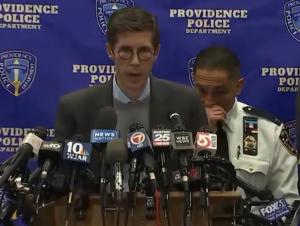I never thought I’d be the kind of man who cheated.
Not because I was some moral saint or faithful by nature, but because I genuinely loved my wife, Emily.
We’d been together for 12 years—met in college, survived job changes, moves, miscarriages, and every kind of chaos life can throw at two people.
And yet, one night, in a haze of loneliness and self-pity after an argument, I crossed the line.
It was with a coworker. Someone who laughed at my jokes, listened to my frustrations, made me feel seen when I felt invisible at home.
It wasn’t love. It wasn’t even about her. It was about my own weakness, my hunger for validation, my pathetic attempt to feel alive.
The affair lasted three weeks. Then came the guilt—cold, sharp, relentless.
Every time Emily smiled at me, I felt like a criminal.
Every time she said “I love you,” I wanted to scream the truth just to end the self-hatred gnawing at me.
So I confessed.
The Confession
It was a Sunday morning. She was making pancakes, humming to herself, hair tied up in that messy bun I always loved.
And there I was, hands trembling around a cup of coffee, about to destroy the peace of our kitchen.
“Em,” I said quietly. “I need to tell you something.”
She turned, smiling. “You look like you’ve seen a ghost.”
I told her everything. Every detail she didn’t want to hear. I didn’t sugarcoat it—I couldn’t.
She listened without interrupting, her face pale but unreadable.
When I finished, she didn’t throw the plate she was holding. She didn’t scream or demand explanations.
She just said, “Okay,” and walked out of the kitchen.
I followed her to the living room, heart pounding. “Emily, please, say something.”
She sat down, hands folded on her lap, staring straight ahead.
“I don’t know what to say,” she whispered. “I think if I start talking right now, I’ll say things I can’t take back.”
Then she stood and went upstairs.
She didn’t sleep in our bed that night—or the next.
The Strange Calm
I expected anger, tears, therapy ultimatums, maybe even divorce papers.
But instead, something stranger happened.
After three days of silence, Emily came to me while I was on the couch.
“I don’t want you to move out,” she said evenly. “At least not yet.”
That “not yet” haunted me.
She said she needed time to process things, that she wanted us to “live normally” for a while.
She started cooking again. Talking about work. Asking about my day.
We even watched movies together like before.
But something about her had changed.
She was calm—eerily calm.
Too calm.
There was no trace of bitterness in her tone, no edge in her voice. Just serenity that felt… unnatural.
I’d rather she’d screamed. The silence, the sweetness—it was suffocating.
The Notes
A week later, I started finding notes.
The first one was on my pillow: “You still have time to become the man I married.”
Then one in my lunch bag: “We all pay for our choices eventually.”
Another taped to the bathroom mirror: “Healing takes honesty. Have you been fully honest?”
I told myself they were signs of progress, that she was trying to help me reflect, maybe even forgive me.
But some of them felt… darker.
“You don’t know what loss feels like yet.”
That one froze me.
When I asked about the notes, she just smiled faintly. “Maybe they’re for me. Maybe they’re for you.”
The Appointments
About three weeks later, Emily started leaving the house more often.
She said she was seeing a therapist. Sometimes she’d be gone for hours. Other times she came home with shopping bags or flowers, humming softly, as if nothing was wrong.
I didn’t question it. I didn’t think I had the right to.
But guilt mixed with paranoia is a dangerous cocktail.
I started wondering—was she seeing someone else now?
Was this her way of getting even?
Late at night, when she fell asleep beside me, I’d lie awake imagining her with another man, whispering the same things she used to say to me.
And every time, the shame felt unbearable.
The Birthday
My birthday came about a month after I confessed.
I didn’t expect her to remember, but she did.
She cooked my favorite dinner—steak and rosemary potatoes—and set the table with candles.
The whole evening felt too perfect, too deliberate.
When dessert came, she handed me a small box wrapped in silver paper.
Inside was a leather journal. On the first page, she had written:
“Every day, write one truth you’ve been avoiding.
When you’re done, come find me.”
I looked up, confused. “What do you mean?”
She just smiled. “Happy birthday.”
The Journal
I started writing the next morning. At first, I treated it like a confession log.
Day 1: I lied when I said it was only once. It was four times.
Day 2: I told her I ended it before she found out. That’s not true. I ended it because she was about to find out.
Each truth felt like ripping off a scab.
Each page made me hate myself a little more—but also, weirdly, lighter.
Weeks turned into months. Emily still hadn’t asked to see the journal, but she’d occasionally glance at me with an expression that made me think she already knew what I’d written.
The Revelation
One evening, after nearly two months of this strange limbo, she came into my study holding the journal.
“I read it,” she said softly.
I froze. “When?”
“A few nights ago.”
I swallowed hard. “And?”
She looked at me with that same calm expression that had haunted me since the confession.
“I asked you to stay because I needed to understand who you really were,” she said. “Not the man I thought you were—the real one. The one who lies, then confesses, then lies again.”
I felt my stomach twist. “Emily, I told you everything in there—”
“No,” she interrupted gently. “You told me everything about the affair. But not about why you did it.”
I opened my mouth, but no words came.
She sat across from me, her gaze unwavering. “You cheated because you needed someone to admire you. To make you feel like a good man again. And you confessed because you wanted me to clean your conscience. You wanted me to do the hard work of forgiving, so you could feel pure again.”
Her words sliced through every rationalization I’d built to protect myself.
“You wanted me to fix you,” she continued, “but you never once thought about what it would take for me to fix myself after you broke me.”
Tears burned my eyes. “Emily, I’m trying—”
“I know,” she said softly. “And that’s why I wanted you to stay. So I could see if trying would ever turn into changing.”
The Plan
Then she did something I didn’t expect.
She handed me an envelope. Inside was a printed document—a rental lease.
“I rented an apartment downtown,” she said. “For me.”
“What?” I stammered. “Are you leaving me?”
She shook her head. “Not yet. I’m giving us space—real space. I’ll live there for six months. You’ll stay here. No contact except through letters. Not texts, not calls. Just written letters. Old-fashioned honesty.”
“Letters?” I repeated, stunned.
“Yes. Once a week, you’ll write me one truth about yourself—not about the affair, but about who you are. What you want. What scares you. I’ll do the same. After six months, we’ll read them together and decide if there’s anything left to save.”
The Letters
Those six months became both punishment and salvation.
Every Friday, I wrote her a letter—sometimes two pages, sometimes ten—about the kind of man I wanted to become. About my guilt, my loneliness, my fear that she’d find happiness without me.
And every Tuesday, an envelope would arrive from her.
Her letters weren’t cruel, but they weren’t forgiving either.
They were honest. Brutally, beautifully honest.
“Some days I miss you so much it hurts.
Other days, I imagine never seeing you again and feel relief.
Maybe both can be true.”
“You always wanted to be the hero in our story.
Maybe it’s time to accept that you were the villain for a while.”
Each letter was a mirror I couldn’t look away from.
The Last Letter
At the end of the sixth month, she asked me to meet her at the park where we’d had our first date.
She looked radiant—peaceful, self-possessed. I realized then that the strange calm she’d carried since my confession wasn’t numbness. It was strength.
She handed me a final letter, sealed with wax. “This is my last one,” she said. “And I want you to read it now.”
Inside was a single line:
“I forgive you—but I’m still leaving.”
I looked up, breath catching. “You’re leaving?”
She nodded gently. “I’ve found peace, but I can’t find it here anymore. You needed to learn who you are without me. I needed to remember who I am without you.”
Tears blurred my vision. “So that’s it?”
She smiled sadly. “That’s grace. It’s not staying. It’s freeing both of us.”
Then she hugged me—long, steady, full of warmth and finality.
Epilogue
It’s been a year.
We still write letters sometimes.
Not to reconcile, but to remember that truth, once spoken, doesn’t have to destroy—it can transform.
Emily moved to a different city. I stayed here, in the house that now feels both emptier and more honest.
I’ve stopped trying to win her back. I’m just trying to become the man her forgiveness believed I could be.
Maybe one day I’ll deserve that forgiveness. Maybe not.
But for now, I live with the silence she left behind—a silence that doesn’t punish, but teaches.
Because sometimes, the most profound act of love isn’t staying.
It’s walking away with grace.

Emily Johnson is a critically acclaimed essayist and novelist known for her thought-provoking works centered on feminism, women’s rights, and modern relationships. Born and raised in Portland, Oregon, Emily grew up with a deep love of books, often spending her afternoons at her local library. She went on to study literature and gender studies at UCLA, where she became deeply involved in activism and began publishing essays in campus journals. Her debut essay collection, Voices Unbound, struck a chord with readers nationwide for its fearless exploration of gender dynamics, identity, and the challenges faced by women in contemporary society. Emily later transitioned into fiction, writing novels that balance compelling storytelling with social commentary. Her protagonists are often strong, multidimensional women navigating love, ambition, and the struggles of everyday life, making her a favorite among readers who crave authentic, relatable narratives. Critics praise her ability to merge personal intimacy with universal themes. Off the page, Emily is an advocate for women in publishing, leading workshops that encourage young female writers to embrace their voices. She lives in Seattle with her partner and two rescue cats, where she continues to write, teach, and inspire a new generation of storytellers.









